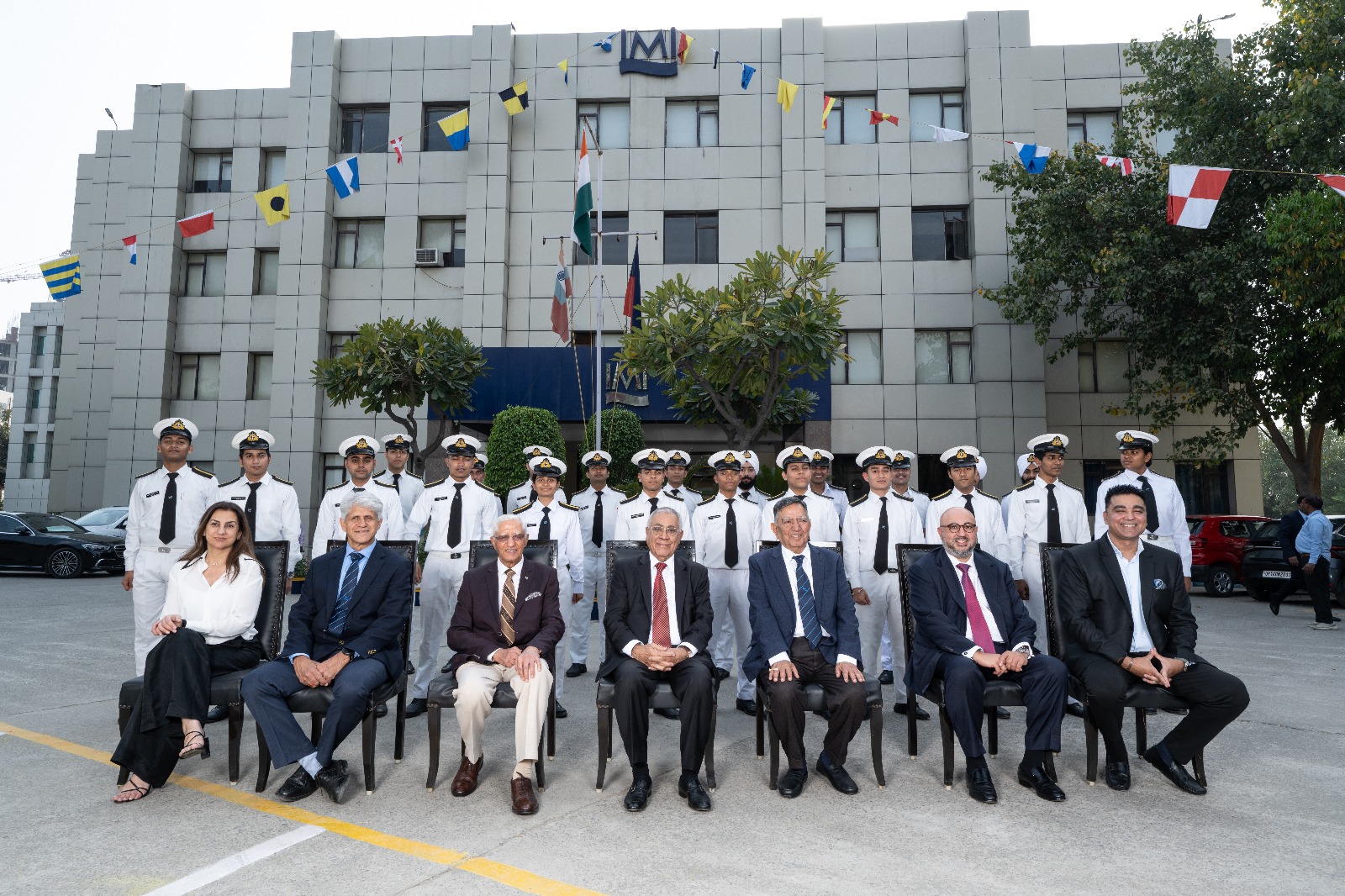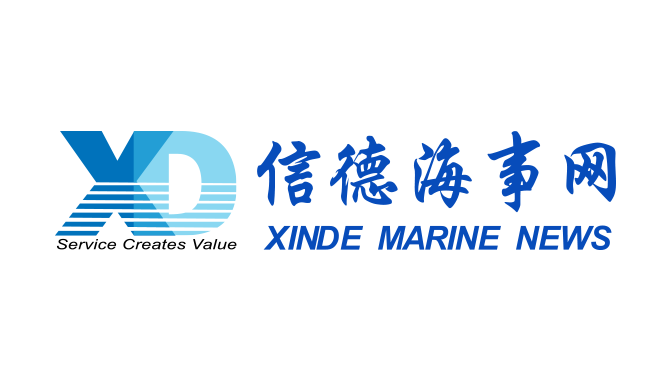Decarbonization is an clear development trend of the shipping industry, but why does the shipping industry embark on decarbonization?
During Hong Kong Maritime Week, Johannah Christensen, the CEO of the Global Maritime Forum, has accepted Xinde Marine News' interview to explore the meaning of decarbonization in shipping industry.

Johannah Christensen
The Global Maritime Forum is an international not-for-profit organisation committed to shaping the future of global seaborne trade. It works by bringing together visionary leaders and experts who, through collaboration and collective action, strive to increase sustainable long-term economic development and human wellbeing.
What are the driving forces for the decarbonisation of shipping, by international conventions or the private sector?
Both international conventions and the private sector play a critical role in driving shipping's decarbonisation.
The International Maritime Organization (IMO) serves as a global regulator, emphasising the importance of international regulations in transitioning to a decarbonised maritime shipping sector. In addition, economic instruments, like market-based measures (MBMs), can function as tools to incentivise zero-emission fuels and bridge the gap between fossil fuels and cleaner alternatives.
For the private sector, decarbonisation can be driven by economic performance, corporate strategy, environmental considerations, and pressure from stakeholders, including investors and customers.
Take the example of the development of book and claim chain of custody systems and how it accelerates early decarbonisation by separating emission profiles from the physical flow of fuel. Actions by the IMO play an influential role, which can guide the industry forward and mobilise action. The adoption of the revised strategy on greenhouse gas emissions at the MEPC80 meeting this past July represents a potential tipping point for the industry, highlighting the importance of global regulatory bodies in catalysing action from the private sector.
Take the example of the Poseidon Principles, which serves as a global framework for responsible ship finance, which will help incentivise shipping's decarbonisation in line with the IMO's climate goals.
What are the remaining challenges to the current process of decarbonising the shipping industry?
Decarbonising the shipping industry is possible, but it will be no small feat, and many challenges remain. But at the same time, there are also opportunities. Now, let's look at the transition to cleaner technologies and alternative fuels, like methanol and ammonia, a topic that took centre stage at this year's COP. Like any transition, there are challenges. In this particular case, the costs for early adopters can be prohibitively high. Yet, these early adopters are needed to help drive progress on the technologies and reduce costs. The absence of standardised regulations and technologies can further complicate the transition, creating uncertainty and hesitation among stakeholders. Then, the challenge is to train seafarers with the knowledge and skills to handle these alternative fuel sources. Lastly, let's not forget that resistance to change within the industry, including concerns about potential disruptions to established business models, can impede the swift adoption of decarbonisation initiatives.
So, challenges – yes, there are many, and the example of transitioning to alternative fuels highlights the numerous layers and complexities intertwined with the decarbonisation of the shipping industry.
Beyond the higher premium costs of dealing with tightening decarbonisation regulations, what are the opportunities for shipping companies in this wave?
Complying with decarbonisation regulations can pose challenges and offer shipping companies compelling opportunities. Investing in energy-efficient technologies can yield operational efficiency and long-term cost savings. And there is significant demand for decarbonised shipping from customers – many of whom are willing to pay a premium.
Innovating with zero-emission vessels or alternative fuels establishes industry leadership. Aligning with decarbonisation goals may grant access to green financing as more and more investors prioritise sustainability. The development of zero-carbon fuels creates new revenue streams, and governments worldwide offer incentives for cleaner practices. Collaboration and strategic partnerships foster innovation and shared resources. Proactive adaptation to future regulations mitigates risks, while global collaboration aligning with international decarbonisation goals opens up new trade opportunities. Embracing this wave positions shipping companies for long-term success in a changing industry.
Global Maritime Forum had led Poseidon Principles, Sea Cargo Charter, The Getting to Zero Coalition, etc. What role have these industry alliances and initiatives played in the decarbonisation of the shipping industry?
Yes, that is correct. However, I would like to point out that several of them are now led and driven by their respective industries, whether banks, insurance companies or charterers. Collectively, these initiatives contribute to the industry's broader efforts to decarbonise by leading the way, setting standards, promoting collaboration, and providing a framework for sustainable practices. They create a shared commitment among various stakeholders, driving innovation, influencing regulations, and fostering a culture of responsibility within the maritime industry. As a result, these alliances and initiatives are instrumental in showing the way and shaping the path toward a more sustainable and decarbonised future for maritime transportation.
The Getting to Zero Coalition, which launched in 2019, functions as an industry-led platform, uniting key players from maritime and fuels value chains, the financial sector, and other stakeholders, all dedicated to achieving commercially viable zero-emission vessels and fuels at scale by 2030. The ultimate goal is complete decarbonisation by 2050. The Global Maritime Forum manages the coalition, which it initially founded together with the World Economic Forum and Friends of Ocean Action.
The Poseidon Principles and Sea Cargo Charter operate as separate entities while similar in their approach of using transparency to drive decarbonisation across the shipping industry. In the Global Maritime Forum, we now act as the secretariat for these initiatives.
The Poseidon Principles, founded in 2019, established a framework for financial institutions to integrate climate considerations into lending decisions for the shipping industry. Today, the banks involved account for around 80% of ship financing, and I know they would love to get the strong Chinese ship financing community more involved as well.
The central idea is that by aligning financing activities with environmental goals, the Poseidon Principles encourage ship owners to invest in and adopt more sustainable and fuel-efficient technologies, thereby accelerating the overall decarbonisation process.
Like Poseidon Principles, the Sea Cargo Charter also provides a global framework. Still, in their case, this framework assesses and discloses the climate alignment of chartering activities in the maritime sector. Founded in 2021, the Sea Cargo Charter promotes transparency and accountability, encouraging charterers to make environmentally responsible decisions when selecting vessels, routes, and cargo, thus incentivising cleaner and more sustainable practices.
The high price of alternative fuels is still the main obstacle to shipping decarbonisation. How to avoid the financial risks that shipping companies may face due to the decarbonisation strategy?
That is an excellent question. In the long run, the solution will come via regulation at the IMO. The revised greenhouse gas strategy will be translated into policies that will come into force in 2027 and can be expected to get tighter over time to deliver on the strategy's goals. Since these regulations will be global and binding, all shipping companies will be operating on a level playing field. That removes most of the risk of decarbonisation. In fact, it makes failing to decarbonise the bigger risk.
While the IMO develops its policies, there are steps others can take to manage risks. Companies can prioritise investments in energy-efficient technologies and secure access to alternative fuels. These actions can go hand in hand, as the new fuels will be more expensive, so operating more efficiently will be of even greater importance and carry a significant financial incentive.
We also think national governments should get involved and help to bridge the gap to IMO policy. Recently, we published an article called National and Regional Policy for Green Shipping Corridors. In it, we highlight that:
"While initiative from the private sector is important, only national governments have the means, and arguably the incentives, to enable [successful green corridors]. The single most important objective for governments is to narrow the cost gap associated with scalable, zero-emission technologies – thus unlocking private sector investments."
Global Maritime Forum is involved with several green corridor projects, for example, one from Western Australia to East Asia, and that work has clearly demonstrated the need for governments to get involved.
What is the meaning of the Green shipping corridors and what benefits will they bring to shipping companies and port operators?
Excellent question! Green shipping corridors are the shipping routes where industry and governments come together to enable zero-emission solutions to be demonstrated and scaled up. The idea is that some routes are well suited to go first and that bringing the most important companies and regulators together to make this happen can help catalyse the changes the entire industry needs to make. We think these corridors will be pivotal in propelling the shipping industry towards achieving zero emissions.
The advantages for shipping companies and port operators are substantial. Green shipping corridors establish a well-defined path for transitioning to new fuels and technologies, helping companies focus their initial efforts on specific routes where zero-emission shipping is most viable. They also promote cooperation between public and private sectors, including risk and cost-sharing.
We recently published our second annual Green Corridors Progress Report, highlighting a doubling of green corridor initiatives, increased maturity in ongoing projects, and establishing more specific and ambitious objectives. Despite notable progress, the report also underscores emerging challenges that must be addressed as green shipping corridors advance towards implementation. These challenges include deciding which fuels to focus on, creating innovative new commercial arrangements, and securing governmental support.
What is China's role in the decarbonisation of the international shipping industry, and what do you expect from China's efforts?
China is a key player in global maritime trade and is in a unique position to influence the industry's decarbonisation trajectory significantly. We anticipate proactive measures, innovative solutions, and decisive policy actions from China, aligning with global sustainability goals. Given China's strong position in shipbuilding, for example, we need the country to ensure its expertise and capacity are ready to build the future low or zero-carbon fleet. At the Global Maritime Forum, we want to engage much more with this particular segment of the industry going forward, for example, at our Annual Summit, which will be in Tokyo in 2024.
As a significant maritime player, China's commitment to decarbonisation will also drive collaborative efforts, technological advancements, and policy frameworks that contribute to a more sustainable and environmentally friendly international shipping landscape.
What is the role of seafarers in the decarbonisation of shipping? What advice would you give to a seaman who has just come on board?
Seafarers are pivotal to the decarbonisation journey, and their proactive engagement in embracing environmentally friendly practices, staying well-informed, and advocating for sustainable initiatives, which include prioritising safety and fostering inclusivity on board, is indispensable for the overall success of the shipping industry's endeavours to mitigate its environmental impact.
Our Human Sustainability Program, which oversees initiatives like the All Aboard Alliance, is dedicated to addressing the well-being of seafarers amid challenges such as safety and well-being and difficulties with crew change practices, particularly in the context of post-COVID-19 dynamics.
Recognising the pivotal role of seafarers, the maritime industry is responsible for empowering, retaining, and educating its workforce as it strives for decarbonisation. In particular, as we progress, seafarers will receive specialised training to handle emerging fuels like ammonia and hydrogen, crucial for achieving zero-emission shipping and minimising our environmental footprint. This ensures the safety and efficiency of vessel operations and contributes significantly to our industry's sustainable transformation.

 Dr. Harry S. Banga and Mr. Angad Banga of The Carav
Dr. Harry S. Banga and Mr. Angad Banga of The Carav  Liberian Registry Welcomes Kyle Hurst as Senior Vic
Liberian Registry Welcomes Kyle Hurst as Senior Vic  KATALIST: Accelerating Green Shipping through Innov
KATALIST: Accelerating Green Shipping through Innov  Revealing the risks: digital solutions for complian
Revealing the risks: digital solutions for complian  Beibu Gulf Port Chairman Zhou Shaobo Passes Away at
Beibu Gulf Port Chairman Zhou Shaobo Passes Away at  Exclusive Interview with Norsepower CEO: Bringing S
Exclusive Interview with Norsepower CEO: Bringing S